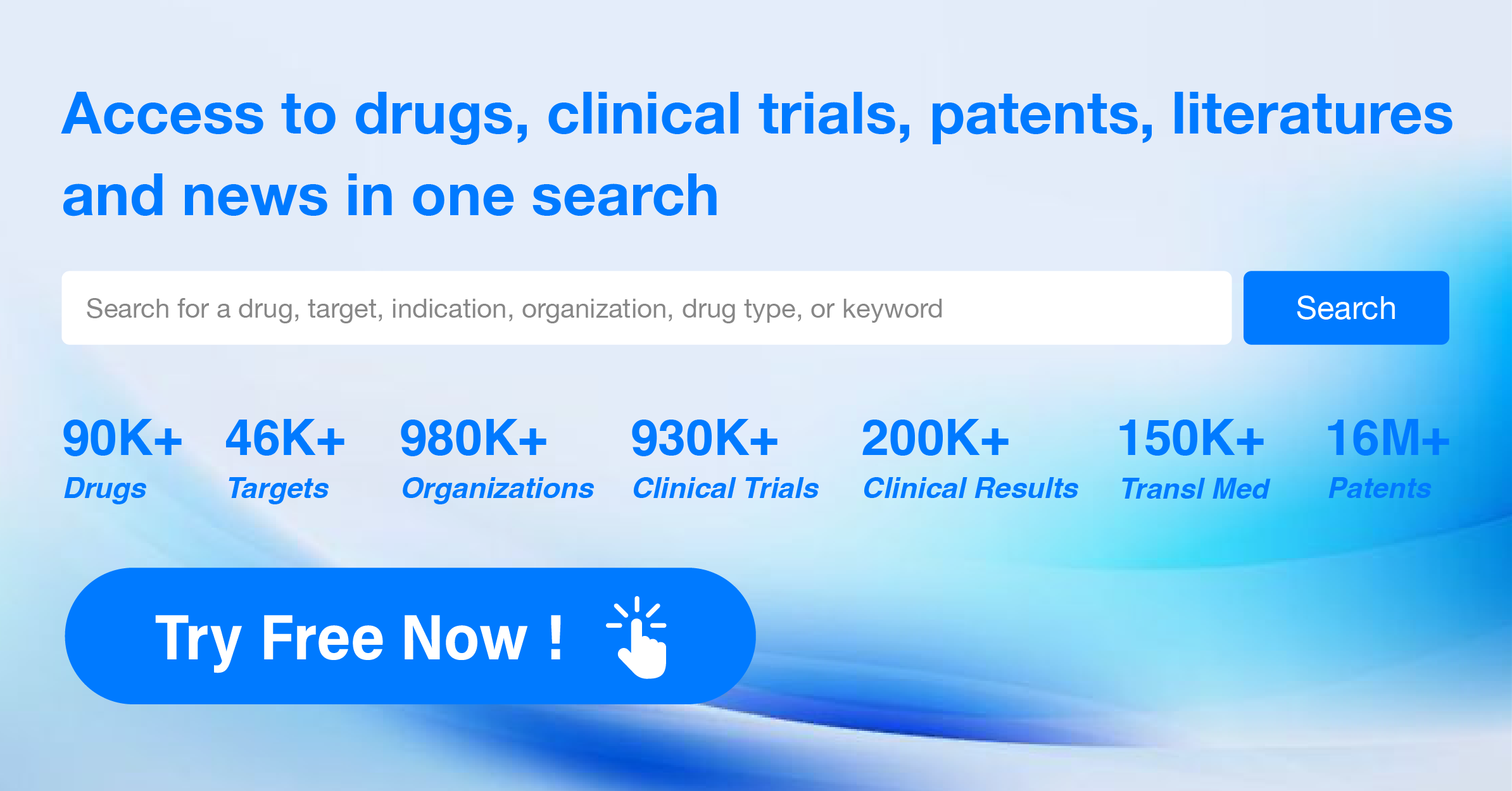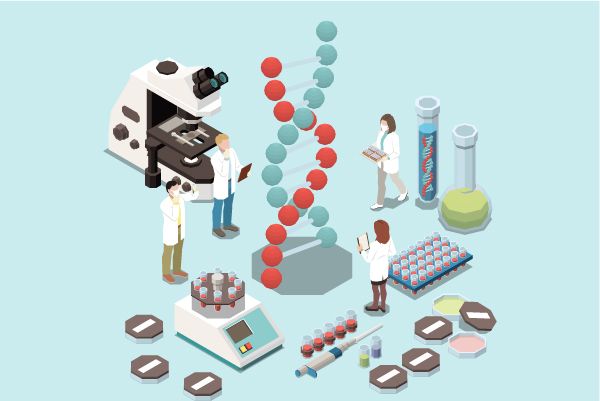Pharma Frontiers: Daily Digest of Global Pharmaceutical News – Jul 23
1.Chongqing Precision Biotechnology's CAR-T product, pCAR-19B, applies for marketing authorization with an overall remission rate of 100%
On July 20th, the official website of the Center for Drug Evaluation (CDE) of the National Medical Products Administration (NMPA) in China announced that Chongqing Precision Biotechnology has filed a New Drug Application for their pCAR-19B autologous cell infusion preparation, which has been accepted. Currently, there are no CAR-T products approved in China for treating children and adolescents with relapsed/refractory B-cell acute lymphoblastic leukemia (B-ALL). As the first domestic CAR-T product to enter pivotal clinical trials for this indication, pCAR-19B has been included in a breakthrough therapy review process. Based on its outstanding clinical efficacy and patient benefit demonstrated in registered clinical trials, the product significantly improves the objective response rate compared to existing treatments. The pivotal clinical trial of pCAR-21B has reached its primary endpoint, and there is anticipation for the public release of more meaningful results, offering a new effective option for pediatric and adolescent patients with relapsed/refractory B-cell acute lymphoblastic leukemia. pCAR-19B was approved to begin registrational clinical studies for the indication of B-cell acute lymphoblastic leukemia (B-ALL) in children and adolescents in China in 2019. According to earlier released Phase 1 registrational clinical data, all 9 enrolled patients achieved complete remission (CR), with an overall remission rate of 100%. Moreover, the first patients to achieve complete remission presented no minimal residual disease and exhibited good overall safety and tolerability.
2.Innovent Biologics has announced the successful completion of its Phase III DREAMS-1 study for Mazdutide
On July 22th, Innovent Biologics announced that its dual GLP-1R/GCGR agonist Mazdutide (IBI362) has successfully achieved the primary endpoint and all key secondary endpoints in the Phase III DREAMS-1 study conducted in Chinese participants with type 2 diabetes and will apply for marketing authorization for this new indication.
The DREAMS-1 study (NCT05628311) is a randomized, double-blind, placebo-controlled Phase III clinical trial designed to evaluate the efficacy and safety of Mazdutide in Chinese patients with type 2 diabetes, who have poor glycemic control despite diet and exercise interventions alone. The trial enrolled 320 participants with a baseline average glycated hemoglobin (HbA1c) of 8.24% and an average weight of 77.7 kg. Participants were randomized in a 1:1:1 ratio to receive either Mazdutide 4 mg (n=106), Mazdutide 6 mg (n=106), or placebo (n=108) for a 24-week double-blind treatment period. After completing the double-blind treatment, participants in the Mazdutide 4 mg and 6 mg groups continued receiving their respective doses for an additional 24 weeks, while those in the placebo group were switched to Mazdutide 6 mg for 24 weeks.
The primary endpoint was the superiority of both Mazdutide 4 mg and 6 mg over placebo in reducing HbA1c from baseline at week 24. According to efficacy assessments, the average reductions in HbA1c from baseline at week 24 in the Mazdutide 4 mg and 6 mg groups were 1.57% and 2.15% respectively, both significantly better than the placebo group, which showed a 0.14% reduction (p-values <0.0001 for both), thereby achieving the primary endpoint.
3.LEO Pharma's Topical JAK Inhibitor for Eczema Phase 3 Results Featured in 'The Lancet'
Recently, LEO Pharma announced that the results of phase 3 clinical trials DELTA 1 and DELTA 2 have been published in the prestigious medical journal 'The Lancet'. The press release states that this is the first time 'The Lancet' has published data on a topical pan-Janus kinase (JAK) inhibitor for the treatment of moderate to severe chronic hand eczema (CHE). In both clinical trials, the investigational pan-JAK inhibitor, delgocitinib cream, met all primary and secondary endpoints. The primary endpoint for the two trials was Chronic Hand Eczema Treatment Success at Week 16 as assessed by the Investigator's Global Assessment (IGA-CHE TS). Treatment success was defined as an IGA-CHE score of 0 (clear skin) or 1 (almost clear skin), and an improvement of at least two grades from baseline. The trial data demonstrated that at Week 16, a higher proportion of patients in the delgocitinib treatment group achieved treatment success compared to the vehicle control group; in DELTA 1, 20% of patients in the delgocitinib group versus 10% in the control group, and in DELTA 2, 29% versus 7% respectively (both trials p≤0.0055). The proportion of patients reporting adverse events was similar between the delgocitinib treatment groups and the vehicle control groups, with the most common adverse events occurring at a frequency of at least 2% in both groups, which included COVID-19 and nasopharyngitis. Delgocitinib is a topical pan-JAK inhibitor that suppresses the activation of the JAK-STAT signaling pathway involved in chronic inflammatory dermatological disorders.
4.Global Second Novel Medication BNC210 for Treating Social Anxiety Disorder Enters Phase III
On July 19, as shown by the clinicaltrials website, Bionomics has initiated the Phase III AFFIRM-1 study of BNC210 for the treatment of social anxiety disorder. This study is a multicenter, randomized, double-blind, placebo-controlled clinical trial (n=332), designed to evaluate the efficacy and safety of BNC210 (225mg) versus placebo for the acute treatment of adults with social anxiety disorder. The primary outcome measure is the Subjective Units of Distress Scale (SUDS) score. BNC210 is a negative allosteric modulator targeting the α7 nicotinic acetylcholine receptor (α7 nAChR), developed by Bionomics and intended to treat social anxiety disorder and post-traumatic stress disorder (PTSD). In December 2021, the FDA granted fast track designation to BNC210 for the treatment of PTSD, other trauma and stressor-related disorders, acute treatment of social anxiety disorder, and other anxiety-related conditions. In March 2023, the Phase II PREVAIL study of BNC210 (225mg or 675mg) for treating social anxiety disorder was successfully completed. The data indicated that, compared to the placebo group, there was no significant improvement in the SUDS scores for the BNC210 group (score difference of 5.69, P=0.165); however, the results have clinical relevance and indicate a beneficial trend towards improving anxiety symptoms in patients with social anxiety disorder. After stratifying and reanalyzing the enrolled patients by age, Bionomics observed a more noticeable beneficial trend in reducing anxiety symptoms in younger social anxiety disorder patients aged ≤30 years (score difference of 10.57, P=0.069). Social anxiety disorder is a severe anxiety condition characterized by persistent and intense fear of social or performance-related situations. About 23.7 million adults in the USA suffer from social anxiety disorder. Currently, there are no FDA-approved fast-acting, on-demand treatment options for social anxiety disorder.
5.CorrectSequence Therapeutics Announces Successful Case of Gene Editing Therapy CS-101 in Treating an International Patient with Thalassemia
On July 22, CorrectSequence Therapeutics, a biopharmaceutical company specializing in novel gene-editing technologies, announced that its clinical study conducted in collaboration with The First Affiliated Hospital of Guangxi Medical University has once again successfully cured a patient of severe β-thalassemia. This was achieved using their base editing drug, CS-101. The patient, from Laos, who was previously dependent on regular blood transfusions, managed to become transfusion-independent for over two months, maintaining a stable total hemoglobin level above 120 g/L and has since returned to normal life. Prior to receiving CS-101 treatment, the patient required two units of red blood cells every month. However, within two months of the treatment, the patient's total hemoglobin level increased to over 120 g/L and remained stable, successfully achieving independence from transfusions. It was reported that several patients with β-thalassemia have become transfusion-independent after being treated with CS-101, with two exceeding six months and the longest over eight months. CS-101 injection received IND approval from China's NMPA in April this year. Currently, the Phase 1 clinical trial of CS-101 for β-thalassemia is progressing steadily, and clinical trials for the treatment of sickle cell disease are also in preparation.
6.New indication approved for clinical use! Hengrui Pharmaceuticals' innovative drug reduces surgical risks
Recently, Hengrui Pharmaceuticals announced on its official website that it has received the "Clinical Trial Approval Notification" from the National Medical Products Administration (NMPA). The company's Class 1 new drug, Herombopag Olamine tablets, has been approved for a clinical trial targeting adult patients with chronic liver disease (CLD) accompanied by thrombocytopenia who are scheduled to undergo invasive procedures or surgery. Thrombocytopenia associated with CLD is a common complication of various liver diseases, which include, but are not limited to, chronic viral hepatitis, drug-induced liver disease, alcoholic liver disease, non-alcoholic fatty liver disease, autoimmune liver diseases, metabolic liver disease, cryptogenic liver disease, and liver tumors. These patients face an increased risk of bleeding during invasive procedures or surgeries, which not only complicates medical interventions but may also lead to the cancellation or postponement of surgery, thus missing the optimal treatment opportunity. According to the consensus of Chinese experts, when assessing CLD patients scheduled for elective invasive procedures or surgeries, if the platelet count is below the safe threshold, measures to increase platelet levels, including platelet transfusion and drug therapy, should be considered. Platelet transfusion is limited in clinical applications due to its short shelf life, supply constraints, and potential transfusion complications, especially in liver disease patients who require repeated transfusions where immunologic factors can lead to ineffective transfusions. Therefore, pharmacological treatment to increase platelet counts is particularly critical, offering a safer and more effective alternative for these patients. Herombopag Olamine, independently developed by Hengrui Pharmaceuticals, is an orally administered, non-peptide thrombopoietin receptor (TPO-R) agonist that promotes platelet production by activating TPO-R-mediated STAT and MAPK signaling pathways.
7.GSK Terminates Collaboration with Wantai Biological on Next-Generation HPV Vaccine Development
On July 22, Wantai Biological issued a notice regarding the termination of the partnership agreement between its wholly-owned subsidiary and GSK. In September 2019, Innovax Biotech, a wholly-owned subsidiary of Wantai Biological, signed a cooperation agreement with GlaxoSmithKline for the development and commercialization of a next-generation cervical cancer vaccine. The agreement outlined a collaboration based on Innovax Biotech’s E. coli prokaryotic vaccine antigen expression technology and GSK's adjuvant technology to develop the next-generation cervical cancer vaccine, HPV9-AS04 candidate vaccine. Under this agreement, Innovast Biotech was responsible for the production of the antigen in China, while GSK was in charge of overseas development and production of the vaccine adjuvant and finished vaccine product. Both parties were to undertake commercial development within the territories agreed in the cooperation agreement.
Following amicable consultations, both parties decided to discontinue the development and commercialization collaboration of the HPV9-AS04 candidate vaccine under the existing cooperation agreement and signed a termination letter on July 20, 2024. Both parties agreed to sincerely cooperate and properly handle the issues related to the termination within 100 days as stipulated in the cooperation agreement, which includes ceasing all unfulfilled commitments and discontinuing any vaccine-related activities. Considering the HPV9-AS04 candidate vaccine's ongoing Phase II clinical trials initiated by GSK prior to the agreement's termination, Innovax Biotech will continue to provide necessary assistance regarding the vaccine’s clinical trials, pharmacovigilance, and quality-related activities. Following the discontinuation of the development of the HPV9-AS04 candidate vaccine and post-agreement termination, Innovax Biotech will no longer retain the exclusive representation rights of the HPV9-AS04 candidate vaccine in China and certain other countries/regions.
8.Huadong Medicine has reached a collaboration agreement with Qyuns Therapeutics on a new autoimmune drug
On July 21, Huadong Medicine announced a collaborative agreement with Qyuns Therapeutics to co-develop and market Qyuns Therapeutics’ own research and development injectable, a recombinant humanized IL-4Rα monoclonal antibody known as QX005N. Under this collaboration, Zhongmeihuadong Pharmaceutical, a wholly-owned subsidiary of Huadong Medicine, will actively participate in the subsequent clinical development of QX005N injection within the authorized regions (mainland China, Hong Kong, Macau, and Taiwan). This includes bearing 50% of the cost for Phase 3 clinical development and subsequent registration fees for relevant indications; concurrently, Zhongmeihuadong Pharmaceutical will obtain exclusive marketing rights within the authorized regions. If these rights are exercised, Qyuns Therapeutics will entrust the marketing of QX005N injection to Zhongmeihuadong Pharmaceutical and compensate them for promotional services. Furthermore, Zhongmeihuadong Pharmaceutical will also secure a right of first refusal for the product's marketing authorization transfer.
QX005N targets the human IL-4 receptor α subunit (IL-4Rα) and mediates therapeutic effects by specifically binding to IL-4Rα, thereby blocking the interaction between IL-4Rα and IL-4 and IL-13. This inhibition suppresses the signaling pathways and biological effects mediated by IL-4 and IL-13, which is pivotal in treating Type 2 inflammatory allergic diseases. QX005N injection has obtained seven IND (Investigational New Drug) authorizations for the treatment of disease indications such as moderate to severe atopic dermatitis, nodular prurigo, and chronic rhinosinusitis with nasal polyps in adults. In January 2024, the injectable was included in the China National Medical Products Administration (NMPA) Centre for Drug Evaluation’s list of breakthrough therapy designations.
How to obtain the latest research advancements in the field of biopharmaceuticals?
In the Synapse database, you can keep abreast of the latest research and development advances in drugs, targets, indications, organizations, etc., anywhere and anytime, on a daily or weekly basis. Click on the image below to embark on a brand new journey of drug discovery!




